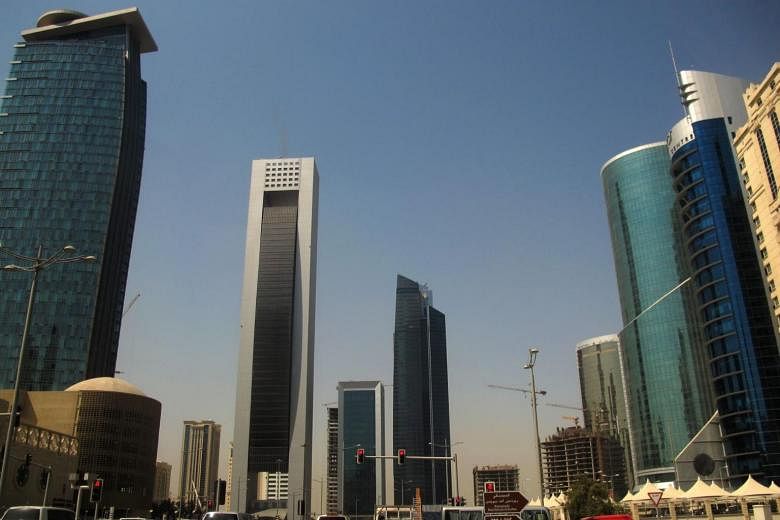Turkey's Foreign Minister is in Saudi Arabia in the latest round of shuttle diplomacy aimed at defusing a potentially dangerous stand-off between Qatar and its Saudi-led Gulf neighbours.
In contrast, the United States, while a key player whose biggest airbase in the Gulf is in Qatar, finds itself with limited options in a delicate balancing act.
Qatar hosts some 10,000 US personnel at Al-Udeid airbase, from where US-led strikes on the Islamic State in Iraq and Syria are launched.
This week, the US agreed to sell 36 F-15 fighter jets worth US$12 billion (S$16.6 billion) to Qatar as part of a larger arms deal. Asked about this, White House Deputy Press Secretary Sarah Sanders said: "Common security between all the regions is obviously our top priority."
She also said the agreement "is the tangible show of support for our defence relationship and Qatar's commitment to the US".
But the Gulf stand-off has also laid bare dissonance in Washington between the President and his top diplomatic and security teams.
Mr Donald Trump publicly supported the isolation of Qatar on June 5, saying in a Twitter post: "During my recent trip to the Middle East I stated that there can no longer be funding of Radical Ideology. Leaders pointed to Qatar - look!"
He said in another tweet: "They said they would take a hard line on funding extremism, and all reference was pointing to Qatar. Perhaps this will be the beginning of the end to the horror of terrorism!"
Unlike their exuberant President, the State and Defence departments have been careful to maintain the relationship with a key US ally.
Analysts have warned the US to be careful not to drive Qatar deeper into the arms of Iran, which along with Turkey has rushed supplies to Qataris. Teheran has also opened Iranian airspace to commercial aviation from Qatar banned from overflying Saudi Arabia.
Mr Tamer Badawi, a research fellow at the Istanbul-based Al Sharq Forum, told The Straits Times over the phone: "It seems the Trump administration wants to score goals in both camps. They want more deals and more money. But there is no consistency in policy-making."
Said Professor Paul Sullivan at Georgetown University's Centre for Security Studies: "It is an extraordinary economic, diplomatic and military mess.
"The US alone does not have sufficient leverage over the parties. To unwind this is not the responsibility of the United States, and can't be done just by the United States. It has to be done by many different parties,"he said.

